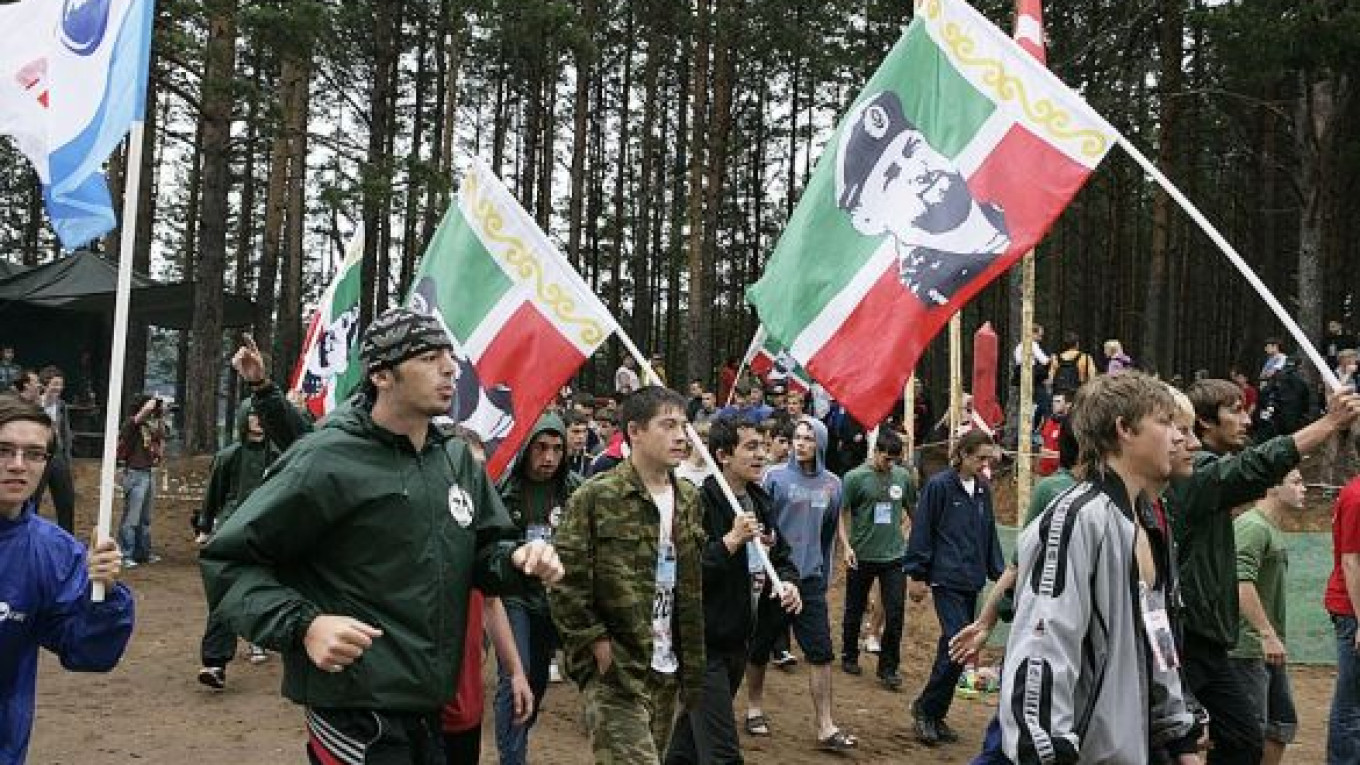A senior Kommersant executive demanded Thursday that the Prosecutor General's Office open a criminal case against officials at the pro-Kremlin youth group Nashi, accusing the organization of being behind an Internet attack on the paper several years ago.
The angry charge is the latest in a backlash against Nashi and its founder Vasily Yakemenko, a widely unpopular figure among the opposition. It also comes amid suggestions that the Federal Youth Agency — which Yakemenko heads — will distance itself from the group and that Yakemenko will soon be out of a job.
Experts say the fiery youth leader's position in the government has become weaker after the Kremlin's top political operative Vladislav Surkov was pushed out as deputy head of the presidential administration.
Kommersant's general director, Demyan Kudryavtsev, said recently leaked e-mails linked a 2008 distributed-denial-of-service attack on the paper's website to Nashi officials.
"Internal correspondence between Nashi officials reveals that they have understood that their actions were unlawful, but they believed that they were impervious," Kudryavtsev wrote on his blog Wednesday night.
Kudryavtsev was referring to private e-mails between Nashi and youth agency spokeswoman Kristina Potupchik and Yakemenko, revealed by hackers earlier this week.
One of the e-mails written by Potupchik suggested launching a DDoS attack against Kommersant shortly after the paper published an article in 2008 on the movement during Dmitry Medvedev's presidential campaign quoting a source close to him calling Nashi "glorified street gangsters."
Not long after, an attack on Kommersant's website actually took place, knocking the site offline for several hours. Kommersant's publishers have long suspected that Nashi activists were behind the attack.
Other leaked e-mails also contained a list of prominent opposition leaders and bloggers on both the right and left, dubbed the group's "vilest enemies." The list included television host Vladimir Pozner, liberal expert Igor Yurgens and A Just Russia leader Sergei Mironov.
Neither Yakemenko nor Potupchik has commented publicly on the matter. Analysts say all signs suggest that Yakemenko will soon leave his post at the youth agency, which has been widely criticized for turning into a political machine favoring Nashi and other youth groups.
Legal experts told The Moscow Times that there were grounds for prosecutors to conduct an investigation into the matter and possibly level charges against anyone determined to be behind the attack.
Yakemenko, 40, has indicated in a recent interview that he intends to soon leave the agency, saying he is too old to head a youth organization.
Sports, Tourism and Youth Politics Minister Vitaly Mutko, who oversees Yakemenko's agency, told Interfax on Wednesday that "youth organizations should be headed by young people." He added that there are "many applicants" who may take the job.
A source close to Mutko has said Yakemenko fell into disfavor because the connection with Nashi has had a negative impact on the minister's international reputation in the run-up to the 2014 Winter Olympics.
Yakemenko took over the youth agency in 2007 and brought the activities of Nashi's Seliger summer camp — famous for organizing political sessions and lectures against the group's political rivals — under the government agency's umbrella.
Vedomosti reported in 2011 that the Seliger event cost 178 million rubles ($6 million) annually, citing calculations based on state contracts published on government websites.
In 2010, the camp stirred public outrage after Nashi activists put pictures of opposition political leaders and activists on pikes and decorated them as Nazis.
The youth agency has announced on its website that another Seliger youth camp will take place this summer and that political sessions will continue to play a role. Among the topics featured is the use of public relations, world affairs and even self-defense.
"I was at the last Seliger camp, and I saw that it had become less politicized. The next one will be focused on modernization and patriotism," Nashi member and Vladimir region Duma Deputy Roman Rusanov told The Moscow Times
Even after Yakemenko's potential departure, politics will feature strongly among the agency's efforts, said Iosif Diskin, a political analyst and member of the Public Chamber.
"The agency is called the agency on youth policy, so it cannot be without one, but it should correspond with the needs of all youngsters, not just one group," he said, adding that the new agency boss should be "favored by different public groups."
Diskin is a member of the task force that has developed recommendations on youth policy to be presented to the new president in April this year.
"The state should do everything to make all the flowers grow and not one particular youth group," he said.


